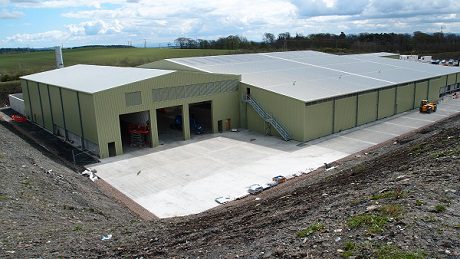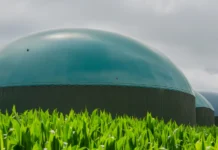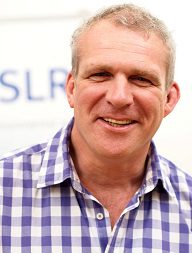
Envirotec addresses a few questions to Alan Edwards, SLR’s new UK managing director
• How did you come to be Managing Director of SLR Consulting?
I first joined as a project hydrogeologist in 1995, during the early days of what is now SLR’s Bradford on Avon office. Initially I worked on hydrogeological projects associated with quarries and landfills and, as landfill risk assessments were a new and developing area at the time, this provided me a great opportunity to develop myself and others around me. The increase exposure that came from this work helped be to diversify into broader landfill-related work and the subsequent introduction of landfill permitting during 2003 considerably helped me to further build teams and develop the Bradford on Avon office. I was then lucky enough to have an ex-colleague ring me up in 2004 asking for assistance on a wind farm development and I have done a considerable amount of work in this sector ever since.
My professional career development has therefore followed a similar trajectory to SLR’s in that both the company and I have been able to diversify and develop – with the result that I have been able to benefit from the opportunities that come with working for an expanding business. While SLR has changed beyond recognition since I joined in 1995, I believe that similar opportunities continue to be there for all our employees.
SLR continued to grow rapidly throughout the ‘00s, expanding both its geographical and technical reach and via strategic acquisitions. Against this backdrop I moved into more of a managerial role, becoming a director of the UK business in 2004. With my remit expanding, I became Director of Operations in 2011 and was appointed UK MD in November last year. This latest appointment is tinged with sadness because, although the move formed part of the company’s development strategy, it was implemented soon after CEO David Richards’ untimely death.
David had a remarkable vision and was a significant force in creating SLR as it is today. It is now recognised as one of the top ‘Global 22’ practices that make up the world’s largest environmental consulting firms and is a major global provider of specialist environmental services.
• What’s a typical day like?
There is no such thing really! Most combine aspects of client work along with liaising with colleagues to review performance and develop future strategy. Even though we have expanded rapidly and now have 27 offices across the UK, employing over 340 staff, we still have a fairly flat management structure, with senior management very much involved in client-focused activity. This approach reflects the company’s entrepreneurial personality and ensures that we have first-hand knowledge and understanding of shifting industry trends.
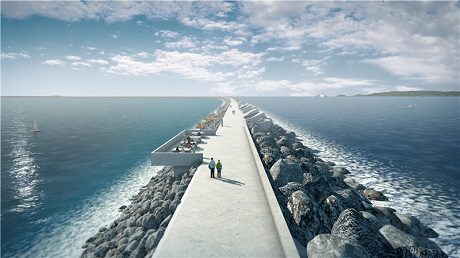
• Where do you see the most significant growth opportunities in the environmental consulting sector, and particularly for SLR Consulting, over the coming years?
SLR is active in many different sectors but I believe that the key areas of growth in the UK will be planning & development and energy – both renewables and oil & gas.
Planning and development work is being driven by the resurgence in house building, but, at SLR, land quality is also showing early signs of growth in connection to resurging M&A/due diligence work.
Renewables will, of course, continue to be of long-term importance as the country moves towards a low, or at least lower, carbon economy. We expect both solar and alternative technologies, such as Anearobic Digestion (AD) and gasification, to become increasingly important, while wind power related work, at least in England, will become focused on off-shore facilities. There is no doubt that changes to subsidies will shape the wind sector going forward.
Similarly, an increasingly unstable geopolitical situation and the accompanying need to secure energy supplies, will provide impetus to the oil and gas sector. At SLR we believe demand for marine capabilities will grow as further North Sea oil exploration opportunities are investigated. On land, shale gas is potentially the next big thing and SLR is already working with major landowners, such as minerals companies, to understand the implications of a potential shale gas revolution. Our work includes investigating if mineral extraction sites could double up as support or storage hubs for the developing shale gas industry.
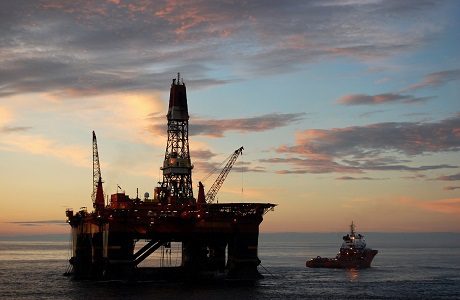
• What type of skills do you think are most important to succeed in environmental consulting?
My advice to anyone starting out in environmental consultancy is to first ensure their technical knowledge is first-rate. However, to really set yourself apart, this needs to be harnessed with commercial knowledge, good communication skills and an understanding of clients’ big-picture priorities.
• Do you think the UK government is doing enough to take the country in a sustainable direction?
Despite its aim to be the greenest government ever, the economic situation and deal-brokering that comes with being part of a Coalition resulted, I believe, in the government being too easily distracted from its sustainable objectives. With the economy picking up it should re-examine its environmental aims and what it can do to achieve them.
• What single measure could we take at the moment that would have the biggest impact on greenhouse gas reduction, in your view?
With global coal use still increasing, more investment is needed to develop carbon capture and storage (CCS). This would help to ensure that CO2 emissions are at least managed more effectively as we go through a transition to a low carbon future.
At a UK only level, improving the energy efficiency of our homes would cut emissions from energy generation and also help control rising energy costs, helping those living in fuel poverty.
• Do you think Scotland will be better equipped for an energy efficient and sustainable future as an independent nation or as part of the UK?
Ultimately this is a decision for the Scottish electorate and they will need to consider this within the mix of issues that they need to understand and balance. My feeling is that the Scottish people understand the importance of energy efficiency and the need for a sustainable future and that measures to help with this could be implemented whether or not Scotland is an independent nation.
